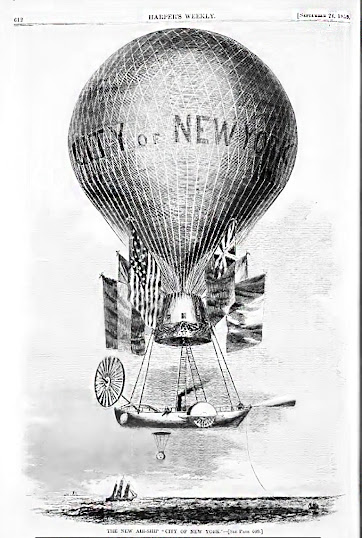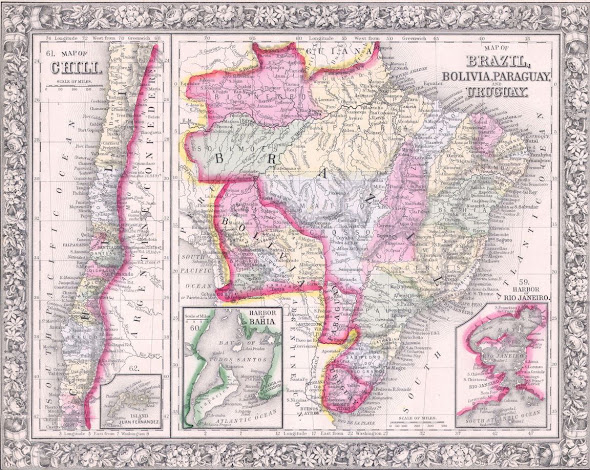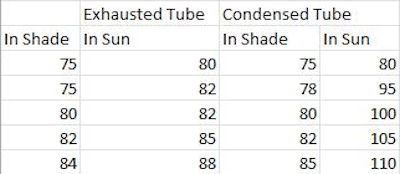On Managing Slaves December 1828
The following is courtesy of the South Carolina Historical Society
An essay on slave management by the overseer of the Butler Plantations. Contrast this description with Fanny Kemble's in 1838 several years after her husband, Pearce Butler took over.
ORIGINAL CORRESPONDENCE
ART. I -- On the Management of the BUTLER Estate, and the Cultivation of the
Sugar Cane; by R. King, Jr. addressed to William Washington, Esq.
[COMMUNICATED FOR THE SOUTHERN AGRICULTURALIST.]
Hampton, (near Darien,)
13th Sept. 1828.
Dear Sir. -- Your letter of the 29th August came to hand on the 8th
inst. Nothing would afford me more satisfaction than to impart the little
knowledge I possess of Southern Agriculture and plantation economy, if such
would benefit others.
We are dependent on each other, and each should contribute his mite. Therefore,
I shall comply with your request as minutely as possible.
The reputed good condition of the Butler Estate, has been the work of
time, and a diligent attention to the interest of said estate, and the comfort
and happiness of the slaves on it.
To Mr. R. King, sen'r. more is due than to myself. In 1802, he assumed the
management. The gang was a fine one, but was very disorderly, which invariably
is the case when there is a frequent change of managers. Rules and regulations
were established, (I may say laws,) a few forcible examples made, after a
regular trial, in which every degree of justice was exhibited, was the first
step. But the grand point was to suppress the brutality and licentiousness
practiced by the principal men on it; (say the drivers and tradesmen.) More
punishment is inflicted on every plantation by the men in power, from private
pique, than from a neglect of duty. This I assert as a fact; I have detected it
often. No person of my age, knows more the nature of these persons than myself;
since childhood I have been on this place, and from the age of eighteen to this
time, have had the active management; therefore I speak with confidence. They
have a perfect knowledge of right and wrong. When an equitable distribution of
rewards and punishments is observed, in a short time they will conform to
almost every rule that is laid down.
The owner or overseer knows, that with a given number of hands, such a portion
of work is to be done. The driver, to screen favorites, or apply their time to
his own purposes, imposes a heavy task on some. Should they murmur, and
opportunity is taken, months after, to punish those unfortunate fellows for not
doing their own and others’ tasks. Should they not come at the immediate
offenders, it will descend on the nearest kindred. As an evidence of the
various opportunities that a burial driver has to gratify his revenge, (the
predominant principle of the human race,) let any planter go into his field,
and in any Negro's task, he can find apparently just grounds for punishment. To
prevent this abuse, no driver in the field is allowed to inflict punishment,
until after a regular trial. When I pass sentence myself, various modes of
punishment are adopted; the lash, least of all -- Digging stumps, or clearing
away trash about the settlements, in their own time; but the most severe is,
confinement at home six months to twelve months, or longer. No intercourse is
allowed with other plantations. A certain number are allowed to go to town on
Sundays, to dispose of eggs, poultry, coopers' ware, canoes, &c. but must
be home by 12 o'clock, unless by special permit. Any one returning intoxicated,
(a rare instance) goes into stocks, and not allowed to leave home for twelve
months.
An order from a driver is to be as implicitly obeyed as if it came from myself,
nor do I counteract the execution, (unless directly injurious,) but direct his
immediate attention to it. It would be endless for me to superintend the
drivers and field hands too, and would of course make them useless. The lash
is, unfortunately, too much used; every mode of punishment should be devised in
preference to that, and when used, never to lacerate -- all young persons will
offend. A Negro at twenty-five years old, who finds he has the marks of a rogue
inflicted when a boy, (even if disposed to be orderly) has very little or no
inducement to be otherwise. Every means are used to encourage them, and impress
on their minds the advantage of holding property, and the disgrace attached to
idleness. Surely, if industrious for themselves, they will be so for their
masters, and no Negro, with a well-stocked poultry house, a small crop
advancing, a canoe partly finished, or a few tubs unsold, all of which he
calculates soon to enjoy, will ever run away. In ten years, I have lost, by
absconding, forty-seven days, out of nearly six hundred Negroes. Any Negro
leaving the plantation, field, to complain to me, is registered and treated as
such. Many may think that they lose time, when Negroes can work for themselves;
it is the reverse on all plantations under good regulations -- time is
absolutely gained to the master. An indolent Negro is most always sick, and
unless he is well enough to work for his master, he cannot work for himself, and
when the master's task is done, he is in mischief, unless occupied for himself.
And another evidence arising from the encouragement of industry, I make on this
estate as good crops as most of my neighbors; plant as much to the hand, do as
much plantation work, and very often get clear of a crop earlier than many
where these encouragements are not held out. I have no before-day work, only as
punishments; every hand must be at work by daylight. The tasks given are
calculated to require so much labor. It is as easy to cut three tasks of Rice,
as it is to bind two, or to bring two home. It is easier to ditch eight hundred
cubic feet of marsh, than four hundred feet of rooty river swamp. There are
many regulations on a plantation that must be left discretionary with the
manager. In harvesting a crop of Rice, some acres are heavier, or further off
than others, some hands quicker, or more able than others all these,
considered, make a wide difference -- by giving a far and a near task to bring
in, or putting them in gangs, the burthen is borne equally, and all come home
at once. Frequently (always I can say) by Friday night, I have nearly as much
Rice in, as if the regular task during the week, had been given....
By this mode I not only gain time, but afford them some also. A man, white or
black, that knows such will be the result, will seldom deviate from the right
course. All these things are not to be slipped into at once; it has been the
work of nearly twenty-seven years, and I find many things yet to correct. With
regard to feeding, they have plenty of the best Corn, well ground, by water and
animal power, with a portion of Fish, (No. 3, Mackerel,) Beef, Pork, and
Molasses, and when much exposed, a little Rum. To each gang there is a cook,
who carefully prepares two meals per day. The very grinding and cooking for
them affords the time that they apply to their own purposes; if their
provisions was given underground, many would trade it off, or be too lazy to
cook it. Any one that has spent a night on a plantation where the Negroes grind
their own Corn, must recollect the horrible sound of a hand mill, all night.
It is this that wears them down. He goes to the mill -- it is occupied -- he
must wait until the first has done, and so on; some are at it all night -- their
natural rest is destroyed. Many masters think they give provision and clothing
in abundance, but unless they use means to have these properly prepared, half
the benefit is lost. Another great advantage in grinding and cooking for them
is, that the little Negroes are sure to get enough to eat. On this estate,
there are two hundred and thirty-eight Negroes from fifteen years down, and
every one knows that they do not increase in proportion in a large gang, as in
a small one, with the same attention. I cannot exemplify in too strong terms,
the great advantage resulting from properly preparing the food for Negroes.--
They will object to it at first, but no people are more easily convinced of any
thing tending to their comfort, than they are. In fact, a master does not
discharge his duty to himself, unless he will adopt every means to promote his
interest and their welfare. Again, many will say it takes too many to wait on
the others. An old woman for a cook, who will raise one little Negro extra,
which will certainly pay her wages, besides the very great comfort it will
afford the others; a machine that will not cost in twenty years, more than $15
per annum; a little boy to drive an old horse two days in the week, and an old
man, (or even the overseer on a place of thirty hands,) to act as a commissary
in issuing the provisions, I am sure, well regulated, will add 25 per cent. to
the owner, including gain in Negroes, comfort to them, and to their master's
feelings. During the summer, little Negroes should have an extra mess. I find
at Butler's Island, where there are about one hundred and fourteen little
Negroes, that it costs less than two cents each per week, in giving them a feed
of Ocra soup, with Pork, or a little Molasses or Hommony, or Small Rice. The great
advantage is, that there is not a dirt-eater among them -- an incurable
propensity produced from a morbid state of the stomach, arising from the want
of a proper quantity of wholesome food, and at a proper time.
I have invariably found that women, that had been accustomed to waiting in the
houses of white persons, have the largest and finest families of children, even
after going into the field. I believe it arises from this circumstance, that
they had contracted a habit of cleanliness, and of preparing their food
properly. You, on looking round, will find this the case. A hospital should be
on each plantation, with proper nurses and apartments for lying-in women, for
the men, and for a nursery; when any enter, not to leave the house until
discharged. I have found physicians of little service, except in surgical
cases. An intelligent woman will in a short time learn the use of medicine. The
labour of pregnant women is reduced one half, and they are put to work in dry
situations.
It is a great point in having the principal drivers men that can support their
dignity; a condescension to familiarity should be prohibited. Young Negroes are
put to work early, twelve to fourteen years old; four, five, or six, rated a
hand. It keeps them out of mischief, and by giving light tasks, thirty to forty
rows, they acquire habits of perseverance and industry....
I am, dear Sir, your most obed't.
R. KING, Jr.
Southern Agriculturalist
December, 1828





Comments
Post a Comment